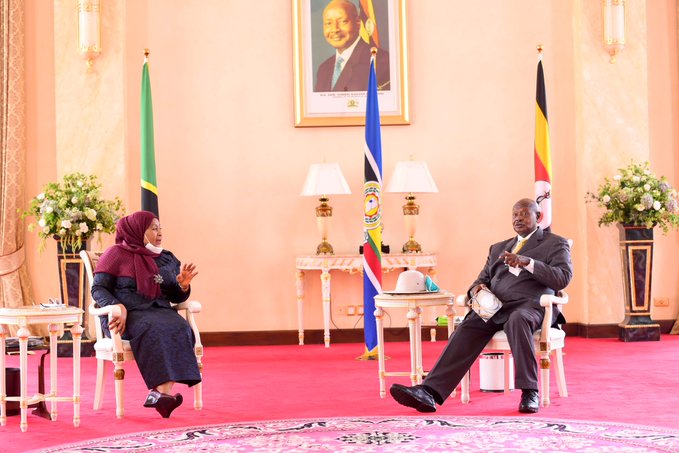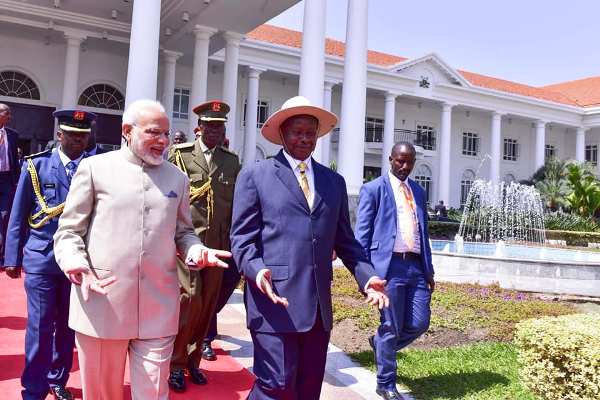Uganda had a $1.1 billion trade deficit with Tanzania at the end of 2020/21 financial year, according to Bank of Uganda trade statistics. And it’s the first time Uganda’s trade deficit and import bill with a neighboring country exceeded a billion dollar.
Uganda imported goods worth $1.24 billion from Tanzania in the 2020/21 financial year and exported goods worth $90.02 million equaling a $1.124 billion deficit according to statistics.
This huge import bill is more than double of $450 million that Uganda had with Tanzania in the 2019/20 financial year. And the import bill is 40 times what it was a decade ago when Uganda last had a trade surplus with Tanzania. Uganda in the 2010/11 financial year exported $38 million and imported goods valued at $32 million.
Comparatively, Uganda imported goods worth $848 million from Kenya and exported products worth $544 million in the 2020/21 financial year. It exported goods worth 303 million to Democratic Republic of Congo and imported goods worth 24 million. Uganda exported goods worth $25 million to Burundi and imported goods worth 64 million. Uganda had the lowest trade volume with Rwanda which closed borders with Uganda at the end of 2019, exporting goods worth $2 million and importing goods worth 3.8 million.
Bank of Uganda statistics don’t give details of commodities that are imported from specific countries. Thus, there is no precise answer of what did Uganda import from Tanzania last year.
Why a huge trade deficit?
Nothing illustrates the story of Uganda’s trade with Tanzania like the story of blocked sugar exports. Uganda has often accused Tanzania of frustrating its trade’s attempt to export sugar to its market. Tanzania often gives export licences to Uganda traders for sugar exports after tedious negotiation. Such licences are usually for a short spell. And when they expire, tedious negotiations restart.
For instance, in February 2019, a month after lifting the sugar importation ban, Tanzania authorities canceled permits they had issued to Tanzania companies importing sugar from Uganda. Tanzania’s agriculture minister argued that companies were importing a lot of sugar fast instead of focusing on expanding production. And in 2017 Tanzania slapped a 200-shilling tax on each liter of milk imported from Uganda. This made Uganda’s milk expensive and un-competitive in the Tanzania market.
Experts point to loopholes in the East African community treaty that countries such as Tanzania and Kenya have been using to block commodities from Uganda, effects of the pandemic and government officials who are not aggressive in vouching for open market in the region for Uganda products.
Dr. Isaac Shinyekwa, the Head of Trade and Regional Integration Department at the Economic Policy Research Centre, a think tank says whereas Uganda removed tariffs, allowing market access to goods from East African community member states, neighbouring countries haven’t done the same.
There have always been complaints of countries blocking goods from member states, Shinyekwa says. “East African countries should always allow us (Uganda) to automatically access their markets. In the event that that does not happen, there should be address mechanism in the EAC. I don’t see that in the EAC. I don’t see formal mechanisms that address these complaints,” he says.
Without a biting East African community secretariat that can force countries to respect the common markets protocol, Shinyekwa says, a country such as “Tanzania is likely to keep protecting its market even when it’s in the EAC.”
It’s the same argument that Julius Mganda Wandera, former State Minister for East Africa Affairs raise: the East African community treaty is weak on conflict resolution. “Conflict resolution mechanisms are there but the will is still lacking because there are people who still fear that they will lose in terms of trade,” he says.
Wandera also argues that dynamics in politics, economies and social development have outgrown the anticipations of the treaty. “First of all, the treaty which was signed in 1999 looked at only three countries; Uganda, Kenya and Tanzania. We are now looking at seven countries. The bloc has grown and issues of conflict resolution were not so anticipated when more partner states came on board. The treaty needs to be amended.”
Production
Dr. Shinyekwa says Ugandans have not been producing a lot to take advantage of the available regional market. “Ugandans think that regional integration automatically brings trade. No. They need to know what trading partners need so that you produce and sell them,” he says.
Wandera says total lockdown that has affected Uganda for more than a year could have impacted production in many sectors “yet a country like Tanzania which had no lockdown proceeded with production.”
-URN





